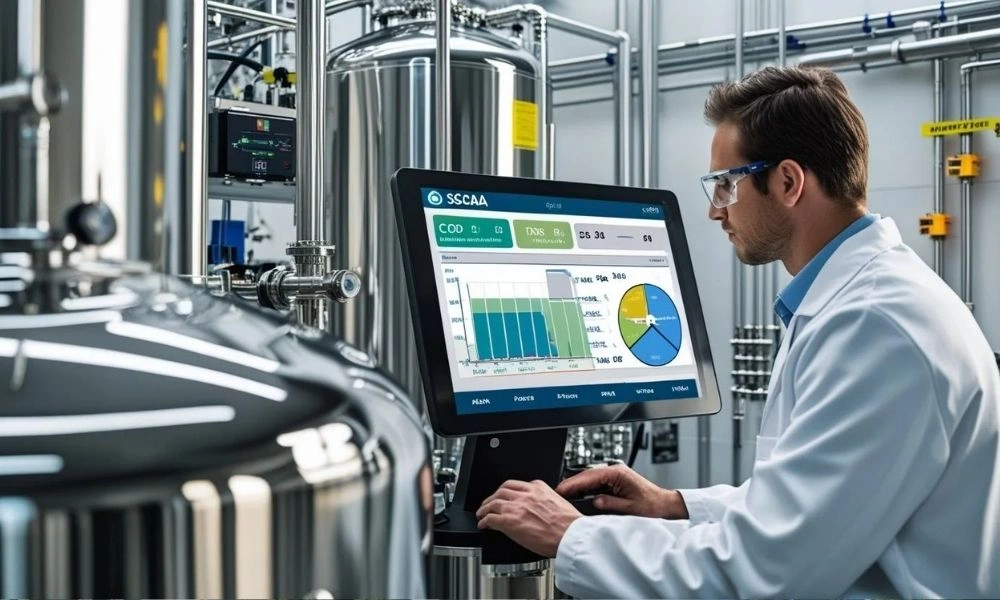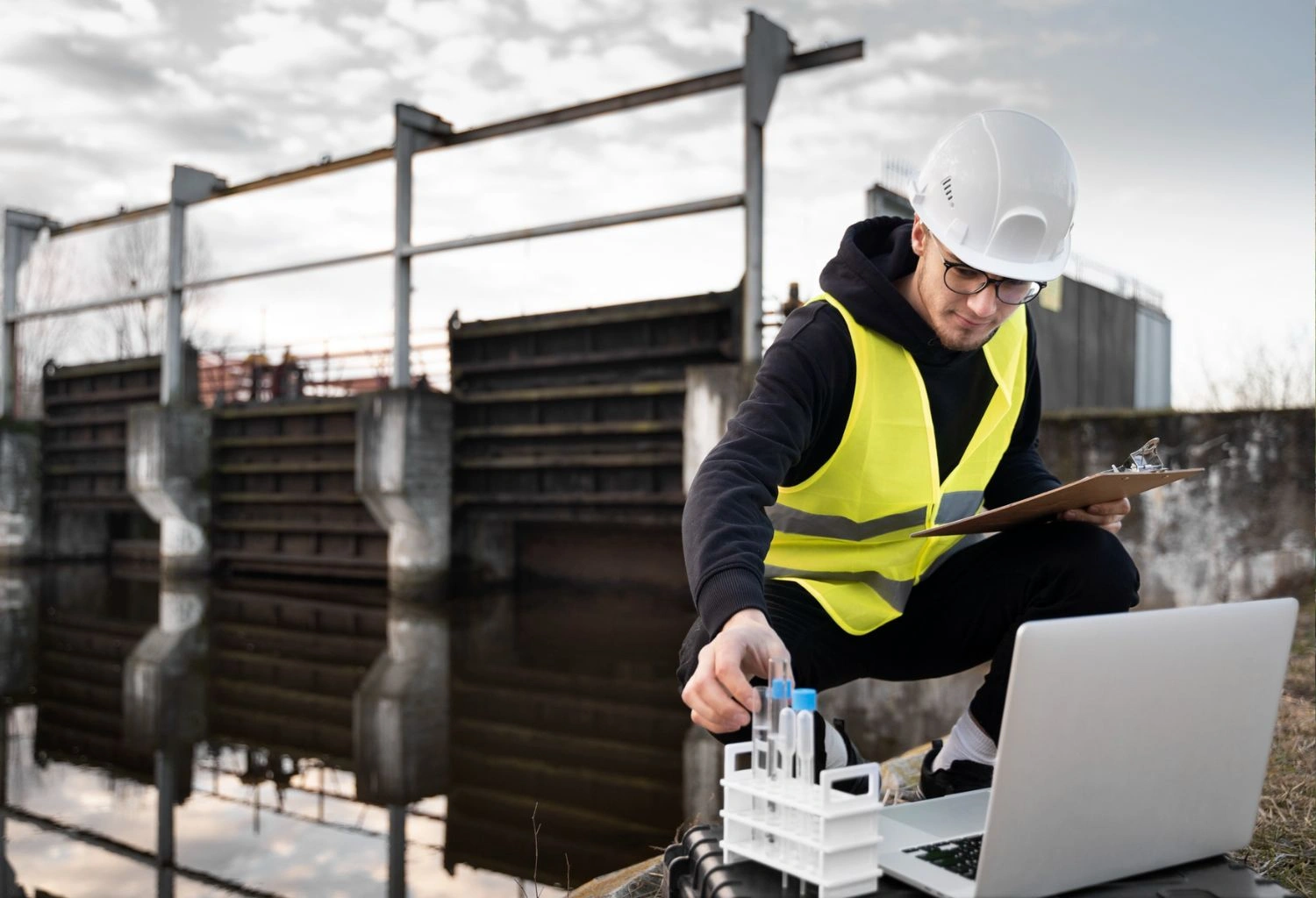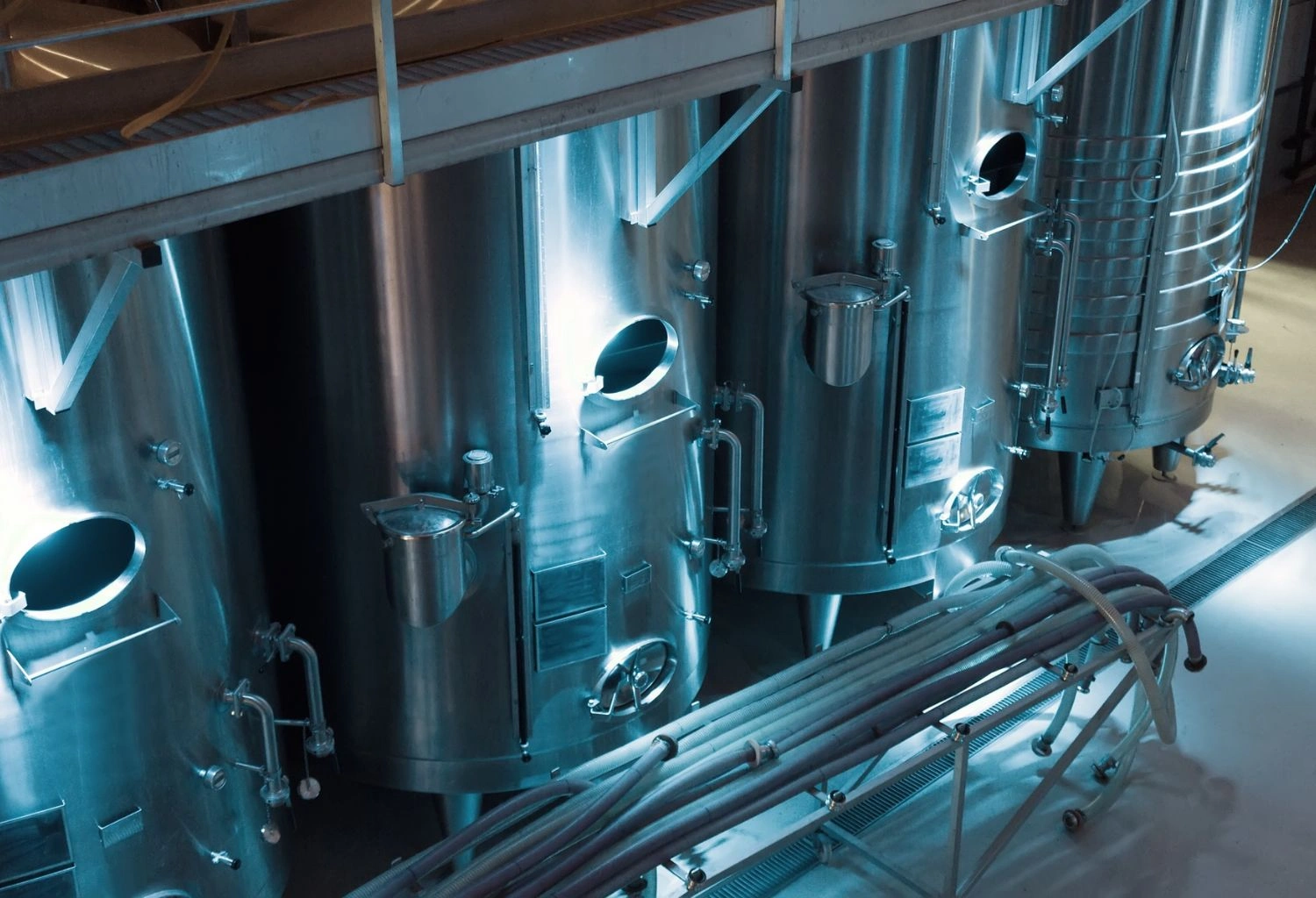Water Care Services Pakistan (WCSP) offers custom-designed municipal & industrial wastewater plants that use advanced, sustainable technologies. With expert planning, automation, and long-term support, WCSP ensures cost-efficient, regulatory-compliant, and eco-friendly water treatment solutions for Pakistan’s future.
Industrial Water Treatment Chemicals
What are Municipal & Industrial Wastewater Plants?
Municipal & industrial wastewater plants are specially designed plants that treat polluted water from residential and industrial sources. They are designed to eliminate the pollutants, toxins, and pathogens from water before discharge or reuse. They assist in preserving public health as well as the environment.
Why is the treatment of wastewater necessary for Pakistan?
Pakistan is encountering a severe water crisis with respect to limited freshwater supplies and increasing pollution. Untreated wastewater contaminates rivers and groundwater, which is harmful to ecosystems and communities. Effective wastewater treatment prevents water reuse, ensures health, and helps promote industrial growth.
What is the Difference Between Municipal Wastewater and Industrial Wastewater?
Municipal wastewater is primarily made up of sewage, greywater, and stormwater from residential and public buildings. Industrial wastewater is composed of process chemicals, heavy metals, oils, dyes, and other contaminants based on the industry. All need specialty treatment systems.
What Are the Key Components of a Municipal Wastewater Plant?
Municipal wastewater facilities employ a sequence of treatment steps such as screening, sedimentation, biological treatment, and disinfection. The solids, organic material, and microbes are removed by these steps, and the water is rendered safe for discharge or re-use.
What Kind of Industrial Wastewater Needs Special Treatment?
Textiles, pharmaceuticals, chemicals, food processing, and tanning industries discharge high-strength wastewater. Dyes, solvents, fats, toxins, and high BOD/COD levels are present in such effluents, and they need to be treated with specific methods involving state-of-the-art technology.
What Technologies Are Applied in Advanced Wastewater Treatment?
Advanced wastewater treatment features a variety of innovative technologies like:
- Bioremediation: Microorganisms breakdown organic contaminants naturally
- Electrocoagulation: Dissolves suspended solids and heavy metals with electric current
- MBBR (Moving Bed Biofilm Reactor): Enhances efficiency through biofilm carriers
- AOP (Advanced Oxidation Process): Degrades difficult and toxic substances
What Makes Water Care Services Pakistan (WCSP) a Reliable Name?
WCSP is a Pakistan-based, ISO-certified organization founded in 2007. They design, install, and maintain sustainable wastewater treatment plants for industries and municipal bodies. Their systems are energy-saving, efficient, and regulation-compliant.
How Does WCSP Customize Plants for Specific Client Needs?
WCSP conducts a comprehensive site analysis involving wastewater testing, flow analysis, and regulatory review. From this, they create treatment systems specific to the client’s water quality, space, budget, and reuse goals.
What Are the Chief Steps in a WCSP Wastewater Treatment System?
What Does Happen in the Preliminary Stage?
Screening and grit chambers are utilized to remove big debris and grit to keep downstream equipment safe.
What Does Happen in the Primary Treatment Stage?
Suspended solids settle in sedimentation tanks, and oils and scum are removed from the top surface.
What occurs in the secondary treatment process?
Organic matter dissolved by biological treatment with activated sludge or MBBR systems is eliminated.
What occurs in the tertiary treatment process?
Disinfection and advanced filtration eliminate any impurities left. AOP or UV systems are commonly employed.
How is sludge managed after treatment?
Sludge is managed by drying, mineralizing, or heating.
Sludge is safely disposed of and dewatered. It can be reused for energy recovery or composting.
Chlorination System
How long does it take WCSP to install a treatment plant?
Installation takes anything between 3 to 6 months, depending on complexity and size, and involves design, procurement, equipment installation, commissioning, and civil work.
What post-installation support does WCSP offer?
WCSP offers comprehensive after-sales assistance such as training, AMC (Annual Maintenance Contracts), spare parts, and remote monitoring for long-term plant performance.
How Do WCSP Plants Assist in Meeting EPA Compliance?
WCSP systems are configured to meet and exceed the discharge criteria of Pakistan’s Environmental Protection Agency. These include pH, BOD, COD, TSS, and heavy metal limits, assisting clients in preventing legal penalties.
Can WCSP Systems Maintain Zero Liquid Discharge (ZLD)?
Yes. WCSP plans ZLD-capable facilities in which wastewater is fully treated and recycled, with no release to the environment. It’s perfect for plants that seek sustainability and global compliance.
What Are the Economic Advantages of Having a Wastewater Plant Installed?
Having a WCSP plant installed saves the cost of water purchase, eliminates EPA penalties, enhances brand image, and becomes eligible for green certifications. The ROI usually comes within 2–4 years.
What Are the Sectors in Pakistan That Avail Most from These Plants?
The major beneficiaries are:
- Urban municipalities and housing societies
- Industrial free zones and estates
- Food, beverage, and dairy factories
- Textiles, pharmaceutical, and tannery industries
- Steel, sugar, and paper mills
Conclusion
Wastewater treatment is essential for Pakistan’s health, economy, and environment. WCSP’s advanced, energy-efficient systems offer tailored solutions for both municipal and industrial sectors. With cutting-edge technology and ongoing support, WCSP ensures compliance, sustainability, and long-term value, making wastewater management a smart investment for a cleaner future.
Frequently Asked Questions (FAQs)
1. What is municipal and industrial wastewater?
Municipal wastewater comes from homes and public buildings, while industrial wastewater contains process chemicals and toxins from factories—both requiring specialized treatment before discharge or reuse.
2. Why is wastewater treatment important in Pakistan?
Untreated wastewater pollutes rivers and groundwater, threatening health and ecosystems. Treatment ensures water reuse, environmental safety, and supports industrial and urban development.
3. How does municipal wastewater differ from industrial wastewater?
Municipal wastewater includes sewage and greywater. Industrial wastewater contains heavy metals, chemicals, and dyes specific to industrial processes, demanding advanced treatment technologies.
4. What technologies does WCSP use in treatment plants?
WCSP uses bioremediation, electrocoagulation, MBBR, and AOP technologies for efficient removal of pollutants, toxins, and heavy metals from wastewater.
5. How does WCSP tailor treatment plants for clients?
WCSP analyzes water quality, flow, and regulations, then designs custom systems based on the client’s needs, budget, and reuse goals.
6. What are the main stages of wastewater treatment?
Treatment includes preliminary screening, sedimentation, biological treatment (like MBBR), and tertiary disinfection using UV or AOP systems for complete purification.
7. How is sludge managed after treatment?
Sludge is dewatered, dried, and safely disposed or reused for composting or energy recovery, reducing environmental impact.
8. How long does it take WCSP to install a plant?
Installation takes 3–6 months depending on complexity, covering design, civil work, equipment procurement, and commissioning.
9. What after-sales services does WCSP provide?
WCSP offers training, AMC, spare parts, and remote monitoring to ensure long-term plant performance and client satisfaction.
10. What are the benefits of installing a WCSP wastewater plant?
Benefits include cost savings, EPA compliance, green certifications, improved public image, and return on investment within 2–4 years.



